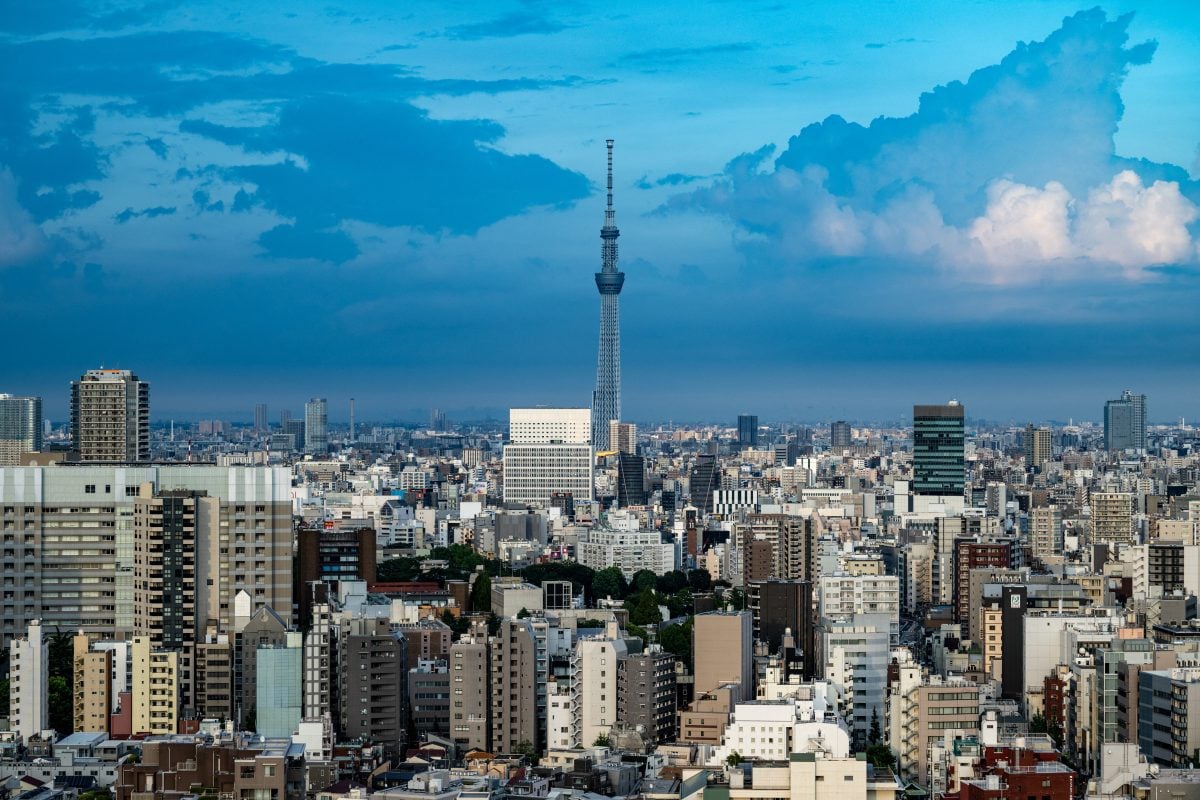Solving Africa’s development challenges will require a huge boost to capital investment. Some $454bn is needed to secure universal energy access by 2030, according to the African Development Bank (AfDB). Achieving all the UN Sustainable Development Goals will require $4 trillion, the Bank believes. And the continent faces a $277bn annual bill for adapting to climate change.
The continent’s ongoing hunt for the funds needed to tackle this litany of challenges has been made harder by US disengagement from the continent. As Africa looks for alternative sources of capital, there is certainly scope for it to make better use of its own financial resources, but there is also a need to find new overseas partners. And one country that is becoming more important for African financial institutions is Japan.
The Japan-Africa match is a potentially promising one. Africa needs billions of dollars of capital investment. Japanese financial institutions have some of the largest balance sheets in the world and have been looking for better way to invest their cash reserves to enhance returns.
Of course, consummating the partnership is far from straightforward, given differences in geography, language and culture. But there is no doubt that African institutions are ramping up efforts to entice Japanese capital. The AfDB, for example, has maintained an office in Tokyo since 2012, while a host of other multilateral development banks and private investment firms have been increasing efforts to engage with Japanese investors. TICAD 9 will provide another opportunity to strengthen ties and move the relationship forward.
Building relationships
One of the major players to make headway in the Japanese market is the Africa Finance Corporation. In recent years, the AFC has secured two “Samurai loan” facilities – a yen-denominated syndicated loan that allows non-Japanese entities to borrow from Japanese financial institutions. Most recently, in 2022, it raised $382m and ¥1bn ($6m) through a dual-currency lending facility.
Japanese investors have grown to become a “critical source of funding” for Africa’s development, says Modupe Famakinwa, head of corporate funding and investor relations at the AFC. She notes that the AFC has well-developed relationships with powerhouse Japanese banks, such as Mitsubishi UFJ Financial Group (MUFG), Sumitomo Mitsui Banking Corporation (SMBC) and Mizuho Bank, all of which have been consistent lenders to the Lagos-headquartered institution.
Famakinwa concedes that building relationships with Japanese banks is not quick or easy for African institutions. “It took us years to develop that relationship, but once we made that connection, the opportunities have been massive,” she says. “The good thing we found with the Japanese institutions is once you build a relationship, it’s quite sticky.”
“Once you’re able to convince them that you are worthy of that trust, you have a loyal investor for a very long time.”
The AFC received another boost in its efforts to cement its reputation in the Japanese market in July, when the institution received an A+ credit rating from the Japan Credit Rating Agency. “Having a credit rating that validates how strong the credit of AFC is, in language that Japanese investors understand, just takes us one step further to open up the doors to even more investors looking at our name.”
A bridge to Africa
Famakinwa says the AFC intends to use its relationships in Japan to benefit its partners in Africa, as part of its mandate to strengthen the continent’s infrastructure development and economic growth. “AFC now has access. The next step for us is to get other African institutions access to this strong economy.” The AFC is part-owned by African governments, while 45 African countries are members of the AFC – meaning they are eligible to receive sovereign lending support, as well as access to the AFC’s pool of funding for infrastructure development.
The AFC has already used its position in Japan to benefit some of its member countries. In November 2023, it acted as a re-guarantor for a ¥75bn ($508m) Samurai bond issued by Egypt. Famakinwa notes that, at this time, the international bond market – a more typical source of financing for African sovereigns – had “extremely elevated yields”. AFC’s support in acting as a re-guarantor for Egypt’s Samurai bond allowed Egypt to borrow from Japanese investors at a much lower yield, saving Cairo around 800 basis points.
One of the next steps, says Famakinwa, is to persuade a broader range of Japanese financial institutions, as well as Japanese corporates, to consider the opportunities that are available in Africa. The AFC has been investing time speaking to manufacturing companies and potential contractors.
“We found that going to have these meetings, one-on-one, even though a door doesn’t open for years, it eventually opens.”
Meanwhile, although the AFC itself has not yet issued a Samurai bond, Famakinwa says it is considering a range of financial structures to help it work with more Japanese investors.
“We’re most likely going to continue to explore and see when and how we can access the Samurai bond market,” she says. Famakinwa adds that the AFC is also looking to partner with the likes of the Japan Bank for International Cooperation (JBIC), the export credit agency Nippon Export and Investment Insurance, and the Japan International Cooperation Agency to put together structures that provide a “win-win” for Africa and Japan.
The key to further progress in the Japan-Africa relationship, Famakinwa says, is “dialogue, dialogue, dialogue”. On-the-ground engagement is vital to help Japanese investors gain a better understanding of African investment opportunities compared to what they could muster through desktop research, she says.
“We believe strongly that there is value in this relationship, and we’re constantly looking for ways to grow and develop and expand this relationship on both sides.”
Turning to TICAD
Ahead of TICAD 9, there are growing signs of momentum in efforts to build financial links between Japan and Africa. In July, Côte d’Ivoire issued a ¥50bn ($339m) Samurai bond, becoming the first country in sub-Saharan Africa to tap into the Japanese bond market. JBIC acted as a guarantor for the bond. The Côte d’Ivoire government intends to use proceeds from the bond to fund programmes under its national development plan that aim to promote inclusive growth and address climate change impacts.
Famakinwa believes TICAD itself will provide a chance to open further doors for Japanese investment.
“How can we build on the relationships we’ve established so far? What new relationships can we connect? What industries can we connect to the continent?” she asks. “We want to open the doors with dialogue to see what is lacking, what still needs to be done.”
She reports that the AFC is likely to announce a number of memoranda of understanding with Japanese institutions and will be organising several side events with its Japanese partners.
“For TICAD, my hope is a lot more Japanese institutions will be aware of the vast opportunities there are with Africa.”
And, in the longer term, she is “very, very confident” that the Japan-Africa relationship will continue to grow, as Japanese investors increasingly recognise the growth opportunities that they can access through backing Africa’s development.
“There’s certainly a drive, even from the government and across all the government engines, to investment in Africa. You can see it. It’s visible.”
Want to continue reading? Subscribe today.
You've read all your free articles for this month! Subscribe now to enjoy full access to our content.
Digital Monthly
£8.00 / month
Receive full unlimited access to our articles, opinions, podcasts and more.
Digital Yearly
£70.00 / year
Our best value offer - save £26 and gain access to all of our digital content for an entire year!

 Sign in with Google
Sign in with Google 



